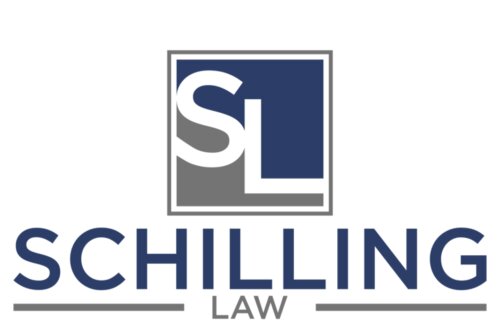Best Work Injury Lawyers in Kansas
Share your needs with us, get contacted by law firms.
Free. Takes 2 min.
Or refine your search by selecting a city:
List of the best lawyers in Kansas, United States
About Work Injury Law in Kansas, United States
Work injury law in Kansas is designed to protect employees who are injured or become ill as a result of their employment. Kansas has a workers compensation system that provides benefits to workers who experience on-the-job injuries, occupational diseases, or work-related deaths. The main goal of this system is to provide medical care and wage replacement while protecting both employees and employers from lengthy lawsuits. Workers compensation in Kansas is considered a no-fault system, meaning employees do not have to prove their employer was negligent in order to receive benefits.
Why You May Need a Lawyer
While the Kansas workers compensation system is intended to streamline the process of obtaining benefits, navigating the system can be challenging. A lawyer experienced in work injury cases can help in several situations, such as:
- Your claim is denied or delayed by your employer or their insurance company
- You experience retaliation or are fired after reporting an injury
- Your injury causes long-term or permanent disability
- You are unsure what benefits you are entitled to receive
- There are disputes about how your injury occurred or the extent of your injuries
- A third party, someone other than your employer or a co-worker, is partly responsible for your injury
- You are offered a settlement and want to ensure it is fair
Having legal guidance can help protect your rights and maximize the benefits you can receive.
Local Laws Overview
Work injury laws in Kansas are primarily governed by the Kansas Workers Compensation Act. Key aspects to know include:
- Almost all employers are required to carry workers compensation insurance
- Employees must report injuries to their employer within 20 days of the accident or when they become aware of a work-related condition
- Employers typically have the right to choose the initial treating physician
- Benefits can include medical expenses, wage replacement for lost work, vocational rehabilitation, and disability payments for partial or total, temporary or permanent disabilities
- There are statutory limits on benefits, including maximum amounts and timeframes
- Certain types of workers (like independent contractors or agricultural workers) might not be covered by workers compensation
Kansas law also prohibits employers from retaliating against employees for filing a workers compensation claim. Disputes are generally handled by the Kansas Division of Workers Compensation, where employees can request hearings and resolve claims.
Frequently Asked Questions
What should I do if I am injured at work in Kansas?
Report your injury to your employer as soon as possible. You must notify your employer within 20 days of the incident or the date you became aware of your condition. Document everything and consider seeking medical attention right away.
How do I file a workers compensation claim in Kansas?
After notifying your employer, they should provide you with the necessary forms or instructions to start a claim with their workers compensation insurance. If you experience issues, you can contact the Kansas Division of Workers Compensation for assistance.
What benefits can I receive from a work injury in Kansas?
Benefits can include payment of medical expenses, temporary or permanent disability compensation, wage replacement, vocational rehabilitation, and compensation for permanent disabilities or impairment ratings.
Can my employer fire me for filing a workers compensation claim?
No. Kansas law prohibits employers from retaliating against employees for filing a workers compensation claim or reporting a work injury.
What if my claim is denied?
You have the right to appeal. You can request a hearing before an administrative law judge with the Kansas Division of Workers Compensation. Legal representation can help you present your case.
Do all workplace injuries qualify for workers compensation?
Not all injuries are covered. For example, injuries that occur while you are intoxicated, engaged in horseplay, or not performing work duties might not be eligible for benefits. Coverage depends on the circumstances.
What if a third party caused my injury at work?
You may have the right to file a personal injury lawsuit against the third party in addition to your workers compensation claim. An experienced attorney can guide you through this process.
Can I see my own doctor for my work injury?
In Kansas, employers have the right to select the treating physician. However, you may request a change of doctor through the Division of Workers Compensation in certain cases.
How long do I have to file a workers compensation claim in Kansas?
You must notify your employer within 20 days of the accident or discovery of the injury. To preserve your claim rights, formal claims generally must be filed within 200 days of the last authorized medical treatment or wage payment.
What if my injury leads to permanent disability?
You may be eligible for permanent partial or permanent total disability benefits based on your impairment rating, ability to work, age, and other factors. These benefits are subject to statutory maximums.
Additional Resources
The following organizations and agencies offer support and information related to work injury and workers compensation in Kansas:
- Kansas Division of Workers Compensation
- Kansas Department of Labor
- Kansas Bar Association
- Local legal aid and legal services organizations
- Occupational Safety and Health Administration (OSHA)
- Employee advocacy groups and unions
These organizations can provide forms, FAQs, complaint processes, and referrals to professional legal help.
Next Steps
If you have suffered a work injury in Kansas, take these steps to protect your health and your rights:
- Report your injury to your employer immediately
- Seek medical attention and follow all treatment instructions
- Keep detailed records of your injury, communications, and expenses
- Review your rights and benefits under Kansas workers compensation law
- Contact a lawyer with experience in Kansas work injury law if you encounter problems, your claim is denied, or if your injury is serious or long-lasting
Consulting with a qualified attorney can help you navigate complexities, meet deadlines, and secure the benefits you deserve. Take prompt action to ensure your legal rights are protected following a workplace injury.
Lawzana helps you find the best lawyers and law firms in Kansas through a curated and pre-screened list of qualified legal professionals. Our platform offers rankings and detailed profiles of attorneys and law firms, allowing you to compare based on practice areas, including Work Injury, experience, and client feedback.
Each profile includes a description of the firm's areas of practice, client reviews, team members and partners, year of establishment, spoken languages, office locations, contact information, social media presence, and any published articles or resources. Most firms on our platform speak English and are experienced in both local and international legal matters.
Get a quote from top-rated law firms in Kansas, United States — quickly, securely, and without unnecessary hassle.
Disclaimer:
The information provided on this page is for general informational purposes only and does not constitute legal advice. While we strive to ensure the accuracy and relevance of the content, legal information may change over time, and interpretations of the law can vary. You should always consult with a qualified legal professional for advice specific to your situation.
We disclaim all liability for actions taken or not taken based on the content of this page. If you believe any information is incorrect or outdated, please contact us, and we will review and update it where appropriate.
Browse work injury law firms by city in Kansas
Refine your search by selecting a city.














